Good Diet and Advice for Dogs with Pancreatitis
Pancreatitis in dogs is life threatening. Dogs that get Pancreatitis can die unless emergency vet care is started immediately when you see symptoms.
We want you to be fully aware of what you can do to avoid Pancreatitis however some dogs are now thought to be born with the pre-disposition.
CLINICAL SIGNS AND SYMPTOMS:
Typical symptoms include, but are not limited to:
· Vomiting;
· loss of appetite or not eating;
· abdominal pain
· The dog, due to abdominal pain, may act restless, pant, cry, shake, stand with an arched back or lie down with his/her front end down and hind-quarters elevated.
Additional symptoms include:
· fever;
· depression
· diarrhea
· severe weakness or collapse
· dehydration or shock.
RISK FACTORS:
Risk factors for developing pancreatitis include a dog being overweight or obese, elevated fats (lipids) in the blood, recent eating of a high fat meal, and other diseases. Also, some medications are believed to predispose to pancreatitis. These medications can include corticosteroids, Phenobarbital and Potassium or Sodium Bromide.
DIAGNOSIS:
A diagnosis of pancreatitis is based on several factors. First, your Vet will want to take your dog’s history and do a physical examination. Procedures for diagnosing pancreatitis commonly include blood work (such as a Complete Blood Count or “CBC”), serum chemistry to measure elevations in the pancreatic enzymes (amylase and lipase), and a urinalysis. X-rays or ultrasound of the abdomen may also be done to check the dog’s internal organs, as well as to check the pancreas for inflammation, abscesses, tumors or other disorders.
Diagnostic blood tests a Vet may conduct include a “cPL test”, which is a specific test for diagnosis of pancreatitis. Other tests used include a trypsin-like-immunoreactivity assay (TLI assay), and an ELISA test for trypsinogen activation peptide (also known as a “TAP” test). A TAP test is done to evaluate the levels of trypsin in the blood. These blood tests apply more specifically to pancreatic function than tests for amylase and lipase.
TREATMENT:
Pancreatitis treatment usually requires hospitalization at the Vet’s office or animal hospital for 3-4 days or more. While in the animal hospital, fluids and nutrients are given intravenously (also known as an “I.V.”) In order to give the pancreas time to “rest” and heal, food, water and oral medications are not given during this time. In addition, pain medications and antibiotics may be given as well.
Additionally, W. Jean Dodds, DVM, provides the following information regarding blood transfusions in treatment of pancreatitis:
“Pancreatitis can be helped to ‘cool down’ with transfusion of fresh-frozen plasma (3-5 cc per pound given once or twice daily). A Vet should consider giving plasma as often as is needed to neutralize the excessive trypsin released by the inflamed pancreas. They can even put the plasma directly into the peritoneal cavity to "bathe" the inflamed area to effectively neutralize any trypsin enzyme that has leaked out of the damaged pancreas and is "autodigesting" the tissues it contacts. If this blood product is not readily available where you are, please call my staff at Hemopet and say it’s an emergency need. Fresh-frozen plasma contains alpha-1 anti-trypsin to neutralize the trypsin produced and released by the pancreas, but in the case of pancreatitis, it is released into the surrounding abdominal tissues causing them to be autodigested.”
WHAT IS PANCREATITIS?
In simple terms, pancreatitis is an inflammation of the pancreas, a gland that produces enzymes that help digest food. When the pancreas becomes inflamed, it produces too much of the digestion enzymes. These “extra” enzymes then damage or destroy the pancreas, intestines and other organs.
Description of Pancreatitis for Vets: Pancreatitis is an inflammation of the pancreas, a gland that produces enzymes that break down proteins to help with the digestion of food. However, if these enzymes become activated inside the pancreas or leek out of the pancreas into the abdomen, they inflame and digest the pancreas and/or other surrounding tissues, and pancreatitis (or more serious digestion of the bowel) will develop Pancreatitis is a very serious disease that can be life threatening and it requires immediate treatment. If you suspect that your dog may have pancreatitis, immediately take him/her to your Vet or take your pup to your local ER Vet for evaluation.
POST PANCREATITIS CARE AND DIET:
Your Vet will provide instructions regarding medications and a feeding schedule for your pup after an episode of pancreatitis. Be aware that a dog recovering from an episode of pancreatitis should be fed a food that contains no more than 10% fat.
Regarding diet for a dog post-pancreatitis, Dr. W. Jean Dodds states that "the liver cleansing diet would be best — even long term.http://www.canine-epilepsy-guardian-angels.com/liver_diet.htm
For those who cannot cook easily for their dogs, select a diet with not more than 10% fat. Fish and potatoes, fish and rice, chicken and rice, or even vegetarian kibbles are generally OK. If they only feed canned foods, which are too soft and mostly water, there will likely be a tartar build up problem. There are vegetarian baked dog biscuits, and people can just moisten and season their dog’s kibble and bake it into biscuits — many of our clients do that, if the company that makes the kibble doesn’t have a comparable biscuit."
Dogs that have had an episode of pancreatitis should NEVER be given high fat treats such as rawhides, pig’s ears, pigars and other similar items. In addition, dogs that have suffered a bout of pancreatitis should not be given coconut oil or any other types of supplemental oils or fats.
Finally, your dog’s Anti-Epileptic medications may need to be changed after an episode of pancreatitis. Dr. Dodds explains “Because of the previous pancreatitis, the risk is much higher that bromide rather than Phenobarbital or other anticonvulsants would trigger another pancreatitis attack.” Dr. Dodds also stated "Keppra would be a good alternative to Bromide."
PROGNOSIS:
Pancreatitis is a serious condition that can be life-threatening. Dogs with a mild case have a better prognosis than those who have a more severe case. If you suspect that your pup may have pancreatitis, take your pup to your Vet or call your local ER Vet as soon as possible for guidance and evaluation.
Diet Factors of Pancreatitis
While fat is often not the initial cause of pancreatitis, it is necessary to reduce the amounts of fat in the diet for a dog recovering from pancreatitis so as not to over stimulate the pancreas. The pancreas is in control of insulin production, which controls blood glucose regulation. Often dogs with diabetes can be prone to pancreatitis, and pancreatitis can lead to diabetes. In cases like these, it would also be a good idea to watch the amount of sugar in the diet. This would include high glycemic vegetables, fruits and honey.
To reduce the work load on the pancreas following an attack of pancreatitis, a low fat diet is recommended, preferably spread over several small meals a day. Smaller, more frequent meals help glucose levels to remain more stable and reduce the load of foods at one serving to decrease the enzyme activity of the pancreas.
In acute cases of pancreatitis, once supportive care is given and the dog recovers fully, they can usually gradually return to their normal diet. In some chronic cases, pancreatin enzymes may need to be given for life so that food can be digested properly.
The diet recommendations I have listed below are for after the dog has recovered from a pancreatic attack, and in most cases are only needed for a few days or weeks. If the dog is prone to chronic pancreatitis, they may well need to be kept on a low fat all their life, and fed several small frequent meals a day. In that event, calcium will need to be added to the home made diets given here, at 800 mg per pound of food served. For short term use (less than two weeks) this is not necessary. Please remember to follow up with your veterinarian for advice on your dog’s recovery and health needs. Periodic check ups and blood panel levels are recommended to monitor health.
50% of the diet should include low fat animal proteins such as:
– White meat chicken (which is lower in fat than dark meat), with skin and excess fat removed.
– Lean or low fat hamburger, and if cooked, drain excess fat (boiling will remove most of the fat).
– Beef heart or roast, with excess fat removed.
– Beef kidney and liver (small amounts).
– Egg whites
– Low fat or nonfat plain yogurt or cottage cheese
25% of the diet should be low glycemic vegetables, such as:
– Broccoli or cauliflower
– Summer squash, such as yellow crookneck or zucchini
– Dark leafy greens, such as romaine lettuce, collard greens, mustard greens, spinach
– Cabbage
These vegetables must be cooked or pureed (in a food processor) in order to be digestible by dogs.
25% of the diet can be higher starch foods such as:
– Sweet potatoes, white potatoes (no skin)
– Oatmeal, rice or barley. These will hopefully add calories lost by feeding a low fat diet.
These foods must be cooked, and grains are more easily digestible if overcooked a little.
To each meal, add digestive enzymes and beneficial bacteria. The Berte’s Digestion Blend is great for this, as it contains a full spectrum of enzymes including pancreatin, acidophilus and l-glutamine which helps fight inflammation in the digestive tract.
Recipe Examples
(for a fifty pound dog, to be fed in three or four portions daily)
Recipe #1:
1-1/2 cups of cooked beef heart chunks, fat drained
1/4 cup steamed or cooked spinach
1/2 cup cooked broccoli
3/4 cup cooked sweet potato
1/2 teaspoon of Berte’s Digestion Blend
Recipe #2
1 cup of cooked chicken breast
1/2 cup of low or nonfat plain yogurt
1/4 cup cooked cabbage
1/2 cup cooked zucchini
3/4 cup white potato
1/2 teaspoon of Berte’s Digestion Blend
Recipe #3
1 cup of boiled lean hamburger, fat drained
1/2 cup cooked beef kidney, fat trimmed
1/4 cup of cooked kale
1/2 cup of yellow crookneck squash
3/4 cup of oatmeal
1/2 teaspoon of Berte’s Digestion Blend
Recipe #4
1 cup cooked stew meat or cut up lean roast, fat drained
1/2 cup low or nonfat cottage cheese
1/2 cup cooked Broccoli
1/4 cup cooked zucchini
3/4 cup cooked barley
1/2 teaspoon of Berte’s Digestion Blend
As your dog improves, you may add vitamin E, vitamin C, a B complex and EPA fish oil. This may take from a few days to a couple of weeks, depending on the severity of the condition. Add EPA fish oil at 1,000 mg per 20 lbs of body weight daily, plus vitamin C, vitamin E and a B complex. A fifty pound dog would get about 500 mg of vitamin C, 400 IU of vitamin E and a B-50 complex.
If these recipes are to be fed longer than 2 weeks, then add 800-1000 mg of calcium per pound of food served (2 cups is approximately one pound). You can use ground eggshell at the rate of 1/2 teaspoon per pound of food, or plain Tums, both of which are calcium carbonate. You should also include liver as part of a long term diet. Give about 1 ounce a day or 2 ounces every other day to a 50 lb dog.
Supplements that B-Naturals carry that are recommended for dogs with pancreatitis include Berte’s Digestion Blend, EPA Fish Oil and Berte’s Daily Blend.
*It is always better to cook real food for your dog (pets) for at least part of their diet. It is even more important if they are sick. Most vets will usually suggest cooking chicken and rice or lean meat and rice at bare minimum and will then often suggest some low fat pet food; wet or dry they usually don’t like it much, so cooking for them at least once a day is important and then supplementing with something like Hill’s low fat dry food.
Sources:
Except where noted, primary information was obtained from Carol D. Levin’s book, “Dogs, Diet, & Disease: An Owner’s Guide to Diabetes Mellitus, Pancreatitis, Cushing’s Disease, & More“ and www.vetcentric.com.
Dr. W. Jean Dodds, DVM, reviewed and also contributed to content.
Related:
Posted by Ask Marion~
August 18, 2011 - Posted by justonemorepet | Animal or Pet Related Stories, Dogs, Holistic Pet Health, Just One More Pet, Man's Best Friend, Pet Friendship and Love, Pet Health, Pet Nutrition, Pet Recipes, Pets, responsible pet ownership | dog diets, pancreatitis, Pancreatitis in Dogs
27 Comments »
Leave a comment Cancel reply
Save a Life…Adopt Just One More…Pet!
Everyday we read or hear another story about pets and other animals being abandoned in record numbers while at the same time we regularly hear about crazy new rules and laws being passed limiting the amount of pets that people may have, even down to one or two… or worse yet, none.
Nobody is promoting hoarding pets or animals, but at a time when there are more pets and animals of all types being abandoned or being taken to shelters already bursting at the seams, there is nothing crazier than legislating away the ability of willing adoptive families to take in just one more pet!!
Our goal is to raise awareness and help find homes for all pets and animals that need one by helping to match them with loving families and positive situations. Our goal is also to help fight the trend of unfavorable legislation and rules in an attempt to stop unnecessary Euthenization!!
“All over the world, major universities are researching the therapeutic value of pets in our society and the number of hospitals, nursing homes, prisons and mental institutions which are employing full-time pet therapists and animals is increasing daily.” ~ Betty White, American Actress, Animal Activist, and Author of Pet Love
‘Until One Has Loved an Animal, Part of Their Soul Remains Unawakened’
So if you have the room in your home and the love in your heart… Adopt Just One More Pet or consider becoming a Foster parent for pets… Also check out: Little Critter: Just One More Pet
Inside of a Dog: What Dogs See, Smell, and Know(Kindle)


Photos By: Marion Algier – The UCLA Shutterbug
There is always room for Just One More Pet. So if you have room in your home and room in your heart… Adopt Just One More! If you live in an area that promotes unreasonable limitations on pets… fight the good fight and help change the rules and legislation…
Save the Life of Just One More…Animal!

Recent and Seasonal Shots
As I have been fighting Cancer… A battle I am gratefully winning, my furkids have not left my side. They have been a large part of my recovery!! Ask Marion
Photos by the UCLA Shutterbug are protected by copyright, Please email at JustOneMorePet@gmail.com or find us on twitter @JustOneMorePet for permission to duplicate for commerical purposes or to purchase photos.
See Creative Pet Halloween Costumes
If you can adopt or foster just one more pet, you could be saving a life, while adding joy to your own! Our shelters are over-flowing… Please join the fight to make them all ‘NO-Kill’ facilities.
Help Make a Difference

Protect Your Pet From Tarter and Gum Disease
Plaque Attack Triple Care Dental Spray Amazon.com Widgets- Adopt Just One More Pet All Animals All Pets animal abuse animal advocacy animal advocates animal cruelty animals ASPCA Bears be part of the solution Birds California cancer canines Cats cats and dogs Chihuahuas China Chiweenies Christmas cute dog Doggies dogs dogs and cats Dr. Becker elephants Fido fish for the love of a pet German Shepherd Halloween holidays holidays with pets horses HSUS Humane Society Humane Society of the United States JOMP Just One More Pet JustOneMorePet kittens kitties livestock Love man's best friend military dogs monkeys New York Pet Abuse Pet Adoption Pet costumes Pet Food pet fun Pet Health Pet Parents Pets pet safety pets and holidays Pets Are Family Pet Therapy Puppies puppy mills pups rabbits Rainbow Bridge reptiles responsible pet ownership responsible pet parents service dogs Stop Animal Cruelty Texas There Is Always Room For One More Pet we are their voice
 JustOneMorePet
JustOneMorePet- In Memory of Rocky – Until We Meet Again on Rainbow Bridge
- In Memory of Rocky – Until We Meet Again on Rainbow Bridge
- Panda Accused of Faking Pregnancy To Get Better Food, Air Conditioning
- Dachshund Family Photo | Picture Furrfect
- They Were Dead Puppy Parts Instead of Dead Baby
- Bob’s Full House
- Keep Your Pets Safe on the 4th of July
- JOMP Salutes Doggie Dads Both Two and Four Legged
- Smartest Dog In the World, Chaser – 60 Minutes With Anderson Cooper
- Quebec bill changes animals from "property" to sentient beings and includes jail time for cruelty
Find Pet Friendly Hotels
Recent Comments
JustOneMorePet
Tweets by JustOneMorePetFlickr Photos
Meta
Great Book for Children and Pet Lovers… And a Perfect Holiday Gift
One More PetEmily loves animals so much that she can’t resist bringing them home. When a local farmer feels under the weather, she is only too eager to “feed the lambs, milk the cows and brush the rams.” The farmer is so grateful for Emily’s help that he gives her a giant egg... Can you guess what happens after that? The rhythmic verse begs to be read aloud, and the lively pictures will delight children as they watch Emily’s collection of pets get bigger and bigger.
~~ 2000+ Dog Books And All Things Dog ~~
Dogwise, All Things Dog! Monthly Feature: BEHAVIOR PROBLEMS IN DOGSBuy Now: A Must Have For Every Pet Owner
-
Archives
- August 2015
- July 2015
- June 2015
- May 2015
- April 2015
- March 2015
- February 2015
- January 2015
- December 2014
- August 2014
- July 2014
- June 2014
- May 2014
- April 2014
- March 2014
- February 2014
- January 2014
- December 2013
- November 2013
- October 2013
- September 2013
- August 2013
- July 2013
- June 2013
- May 2013
- April 2013
- March 2013
- February 2013
- January 2013
- December 2012
- November 2012
- October 2012
- September 2012
- August 2012
- July 2012
- June 2012
- May 2012
- April 2012
- March 2012
- February 2012
- January 2012
- December 2011
- November 2011
- October 2011
- September 2011
- August 2011
- July 2011
- June 2011
- May 2011
- April 2011
- March 2011
- February 2011
- January 2011
- December 2010
- November 2010
- October 2010
- September 2010
- August 2010
- July 2010
- June 2010
- May 2010
- April 2010
- March 2010
- February 2010
- January 2010
- December 2009
- November 2009
- October 2009
- September 2009
- August 2009
- July 2009
- June 2009
- May 2009
- April 2009
- March 2009
- February 2009
- January 2009
- December 2008
- November 2008
- October 2008
- September 2008
- August 2008
If You Were Stranded On An Island…
A recent national survey revealed just how much Americans love their companion animals. When respondents were asked whether they’d like to spend life stranded on a deserted island with either their spouse or their pet, over 60% said they would prefer their dog or cat for companionship!
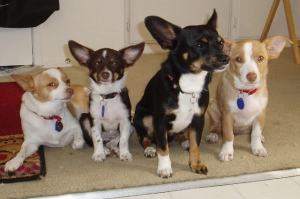




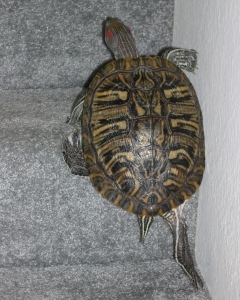

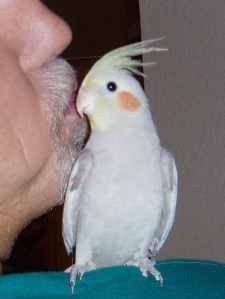

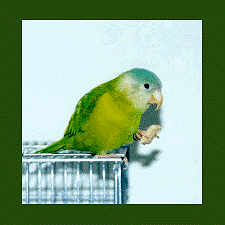
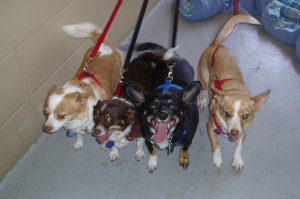


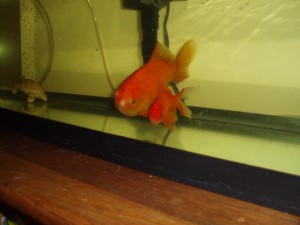
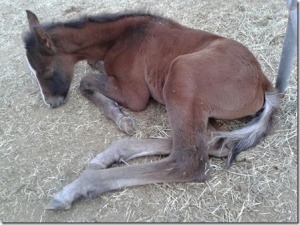

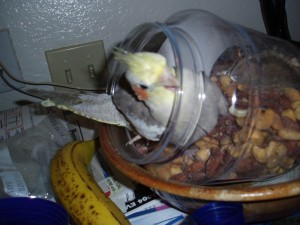

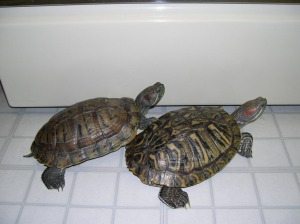
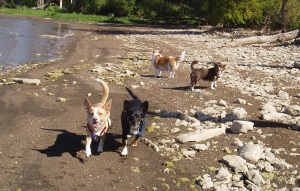






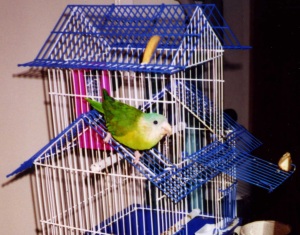



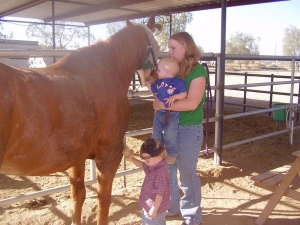
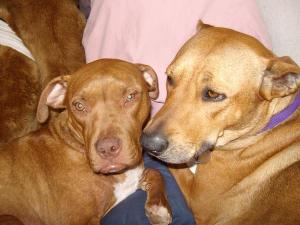
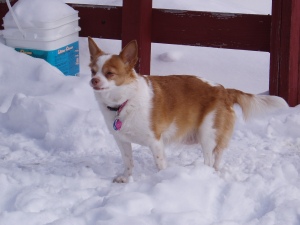


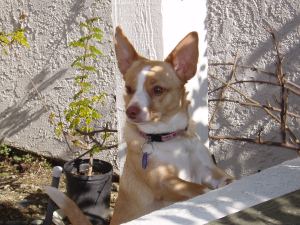
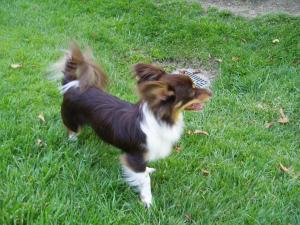
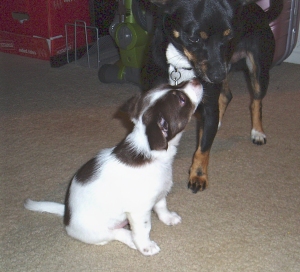














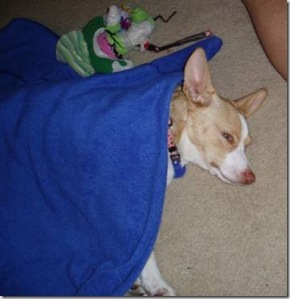




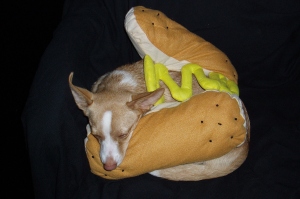












Great advice and fantastic article. thank you for sharing
[…] Too much fat or fried foods can cause pancreatitis. […]
Pingback by Common Foods That Are Harmful Or Even Fatal to Dogs « JustOneMorePet | October 22, 2011 |
[…] Too much fat or fried foods can cause pancreatitis. […]
Pingback by Common Foods That Are Harmful Or Even Fatal to Dogs | askmarion | October 30, 2011 |
[…] Good Diet and Advice for Dogs with Pancreatitis […]
Pingback by Ridiculous Pet Weight Loss Products Continue to Flood the Market « JustOneMorePet | February 24, 2012 |
[…] Good Diet and Advice for Dogs with Pancreatitis […]
Pingback by When Raw Food is NOT the Right Food for Your Pet « JustOneMorePet | June 6, 2012 |
[…] Good Diet and Advice for Dogs with Pancreatitis […]
Pingback by How the Pet Food Industry Has Helped Create "Carnivore Metabolic Syndrome" « JustOneMorePet | July 13, 2012 |
[…] Good Diet and Advice for Dogs with Pancreatitis […]
Pingback by How the Pet Food Industry Has Helped Create "Carnivore Metabolic Syndrome" | askmarion | July 13, 2012 |
[…] Good Diet and Advice for Dogs with Pancreatitis […]
Pingback by Cancer and Your Pet: Two Things to Avoid « JustOneMorePet | August 1, 2012 |
[…] Good Diet and Advice for Dogs with Pancreatitis […]
Pingback by A Raw Food KIBBLE? « JustOneMorePet | September 7, 2012 |
[…] Good Diet and Advice for Dogs with Pancreatitis […]
Pingback by Pet Jerky Death Toll Update: 360 dogs, 1 Cat According to FDA « JustOneMorePet | September 22, 2012 |
[…] Good Diet and Advice for Dogs with Pancreatitis […]
Pingback by Did You Know There are Two Kinds of Raw Pet Food on the Market? « JustOneMorePet | October 25, 2012 |
[…] Good Diet and Advice for Dogs with Pancreatitis […]
Pingback by Toxic Chicken Jerky Pet Treats Pulled from Store Shelves! « JustOneMorePet | February 1, 2013 |
[…] Good Diet and Advice for Dogs with Pancreatitis […]
Pingback by Toxic Chicken Jerky Pet Treats Pulled from Store Shelves! | askmarion | February 2, 2013 |
[…] Good Diet and Advice for Dogs with Pancreatitis […]
Pingback by Pet Food Red Flags You Want to Avoid « JustOneMorePet | February 17, 2013 |
[…] Good Diet and Advice for Dogs with Pancreatitis […]
Pingback by Ditch This Pet Food Now – Can Be Deadly to Your Pets « JustOneMorePet | April 8, 2013 |
[…] article (took me a bit to find it in my bookmarks) has some great information and recipes Good Diet and Advice for Dogs with Pancreatitis JustOneMorePet __________________ Gouda 9/6/01 – 7/19/12 Sue – Mom to Kippah rescued […]
Pingback by My Boxer has Pancreatitis - Page 2 - Boxer Forum : Boxer Breed Dog Forums | July 14, 2013 |
[…] Good Diet and Advice for Dogs with Pancreatitis […]
Pingback by Can Dogs Eat Nuts? « JustOneMorePet | July 15, 2013 |
This article says both to avoid adding any oils, and to add fish oil… wondering if the small amount of fish oil is still ok…
I think a small amount of fish oil would be okay… Probably depends on the dog?!?
Thank you so much for this article. One of my little Cavaliers is currently recuperating from pancreatitis, doing well on her recent and slow transition back to a regular diet, low in fat. The only “treats” I give my three Cavaliers are a few green beans, small pieces of banana, or one egg, divided in three pieces.
Am wondering the same thing.
[…] Good Diet and Advice for Dogs with Pancreatitis […]
Pingback by Don’t Let This Organ Ruin Your Pet’s Life « JustOneMorePet | October 2, 2013 |
[…] with your dog’s system, especially the scrumptious turkey skin. Eating such foods can cause pancreatitis, vomiting and diarrhea. The last thing you want is to end up at the veterinarian’s office, while […]
Pingback by How to keep your dog safe during Thanksgiving holidays « JustOneMorePet | November 17, 2013 |
[…] Good Diet and Advice for Dogs with Pancreatitis … – Aug 18, 2011 · Too much fat or fried foods can cause pancreatitis. […] Pingback by Common Foods That Are Harmful Or Even Fatal to Dogs « JustOneMorePet | October …… […]
Pingback by Low Fat Diet Recipes For Pancreatitis X Ray | Sweat Your Way too… | March 30, 2015 |
Reblogged this on Lady Duck’s Blog and commented:
Bellamia Diet re pancreatitis
Reblogged this on sharonjw0's Blog.
[…] Good Diet and Advice for Dogs with Pancreatitis […]
Pingback by Natural Pancreatitis Remedies for Dogs « JustOneMorePet | May 28, 2015 |